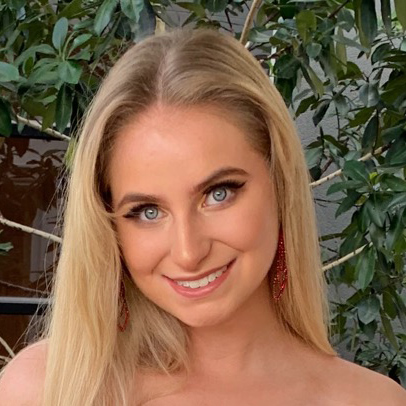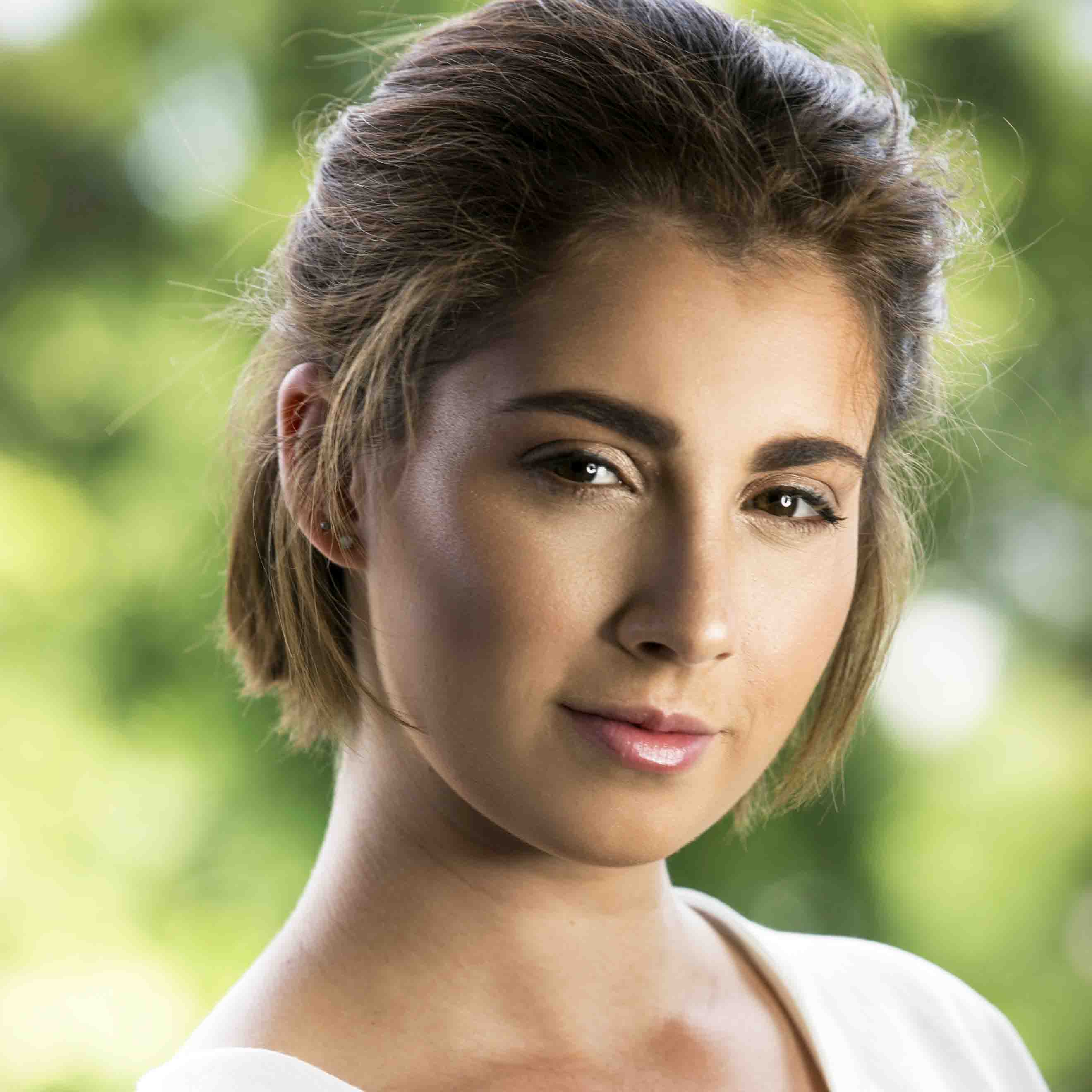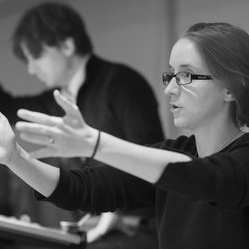Drama
It’s UQ Drama: experiencing, examining, creating theatre
UQ Drama encourages students to examine, experience, and create theatre in a program that offers one of the most comprehensive canonical curriculums in Australia. By studying theatre history, theory and practice at UQ, you will be challenged to think about what constitutes performance on the stage, on the page and in everyday life. You will develop an understanding of the theatrical and literary aspects of drama, from ancient Greek classics and medieval theatre to the most recent plays from around the world. You’ll critique professional performances, review plays, compare the classics with contemporary scripts, and craft your career on a broad base of knowledge and experience. You’ll also work with leading local, national and international practitioners to develop work in our state-of -the art studio facility. As you progress through your major, you’ll also get to write, perform in, and direct plays for assessment.
Learning Pathways
Below is a list of courses you may study in Drama. To view more details visit the program information page for the Bachelor of Arts or Diploma in Arts.
Level One
Elements of Performance (DRAM1010)
Investigates how a dramatic text can be adapted in performance to respond to different contexts. You will be focusing on six main elements of performance: genre, language, body, space, time, and structure. Six texts are studied in detail from these perspectives. This course culminates in a performance outcome, under the leadership of student directors.
The Theatre Experience (DRAM1100)
Introduces students to the study of drama and performance, exploring both written and live texts. You will examine theatre’s special capacity to attract live audiences on the basis of its special effects and story-telling modes. We ask what attracted people to attend theatre across time, and what remains distinctive about the theatre experience today. You will learn about contemporary and historical performance from the perspective of examining, experiencing, and creating theatre. You will also learn acting and performance techniques in class. Throughout this course, we examine the ways in which the theatre of today is haunted by the past, and ask whether in the digital age we are seeing something new or a ghost of what we have seen before.
Level Two
Major Movements in European Theatre (1500-1800) (DRAM2025)
Considers the development of drama from the scripted Medieval plays, through the Elizabethan and Spanish Golden Ages, to neoclassicism and the Sturm and Drang movement. The course covers examples of theatre from Portugal, England, Spain, France, and Germany, and is particularly interested in the role of witchcraft, magic, and the supernatural in the historical European theatrical tradition (1500-1800).
Experimentation in 20th Century Theatre (DRAM2030)
Examines some of the key directors, dramaturgs, designers, playwrights, and visual artists who redefined audiences’ understanding of theatre and performance in the twentieth century, allowing us to see the impact of the past on theatre-making of the present. This course goes beyond a basic history of twentieth-century dramatic literature and theatre theory, considering not only plays, but also theatre’s relationships with a range of aesthetic, scientific, ideological, social, and political discourses.
Contemporary Theatre & Performance (Dram2040)
Uses a series of important “posts” (including post-modern, post-colonial, post-dramatic, post--human, post-feminist, and post-capitalist) as a framework to explore contemporary performance texts and forms. Students will study some of the most interesting plays and performance texts of the last two decades in order to begin thinking about the question: if we really are post-everything, then what exactly is the state of current national and international theatre?
Australian Drama (DRAM2050)
Examines the long tradition of Australian drama from early convict theatre, through nineteenth century melodrama, and across the bush drama, New Wave, Aboriginal drama, and ‘Internationalist’ schools of the twentieth century to the present day. Questions the course asks include ‘How is national identity reflected in the theatre Australia produces?’, or even more importantly, ‘How is national identity shaped by the work of theatre-makers across time?’
Live Theatre Production: Performance Creation & Event Management (DRAM2200)
Provides a practical exploration of stylistic, theoretical, and historical questions through rehearsal and performance of a live theatre event. Students will work practically across the semester in a work simulation to rehearse and perform a full production, under the leadership of an experienced director. You will develop the skills required to present an independent theatre production, as well as acting and performance skills that can be applied elsewhere.
Performative Communication: Presentation and Public Speaking (DRAM2400)
Develops your public presentation and performance skills. Taught in a workshop environment, it will provide essential training in physical and vocal communication, argument structure, and pitching to an audience. You will hone your ability to structure and argument, be physically and vocally commanding and engaging, and pitch a presentation or performance to an audience. This course draws on a variety of methodologies including (but not limited to) classical rhetoric, the Linklater voice method, and scenic improvisation.
Level Three
Theatre Historiography: Making the Connections (DRAM3103)
Examines theatre’s engagement with themes of violence and conflict, and theatre’s subsequent potential to affect its audiences viscerally. This course critically interrogates theatre history and historiography, by asking what is recorded and why. Moving backwards and forwards across theatre history, we trace our way through some of the most intriguing plays in the canon, touching on Greek theatre, Renaissance theatre, the nineteenth-century gothic, sensational melodramas, and contemporary iterations of murder, mayhem, and madness on stage, making the connections between certain tropes and approaches that have reoccurred or changed over time. You will also have the opportunity to develop your own individual research projects.
Playwriting & Dramaturgy: Creative Practice (DRAM3102)
Studies how to be both playwright and dramaturg during this seminar-based learning program. The first half of the semester you will build your playwriting skills and d10evelop a thorough understanding of the various roles dramaturgs can have in the development of new work. In the second half, you will write your own original short work for the stage; you will also be assigned to a fellow student’s play as dramaturg.
Independent Practice: Secondments, Field Trips, Research (DRAM3104)
Focuses on Secondments in Industry or an Individual Research Project. For the Secondments, you may have the opportunity to work with Queensland Theatre Company’s Traction team, Metro Arts, the Brisbane Writers’ Festival, or Queensland Music Festival. Some students pursue apprenticeships with Playlab, or arrange with individual companies based on students’ areas of prior experience and expertise. For the Individual Research Project, you will develop an extended 4,000 word research essay on a topic of your choosing.
Directing & Dramaturgy: From History to Workshop (DRAM3105)
Shifts from theory to practice, introducing you to the evolution of contemporary directing and dramaturgy (figure and field). Structured in three modules, the course shifts from the study of the historical evolution of directing and dramaturgy and the moves to consideration of contemporary practice augmented by practical skills development. In the final third of the course, you will direct a short play or scene from a play for public performance.
Testimonials
 "UQ drama has been a fantastic experience. I love every minute of it – even when I'm not doing a performance and I'm directing on the sidelines, it's incredible."
"UQ drama has been a fantastic experience. I love every minute of it – even when I'm not doing a performance and I'm directing on the sidelines, it's incredible."
Bella Schwarzenecker, Bachelor of Journalism/Arts (Drama)
Read Bella's UQ Drama story here.
 "UQ Drama opened up the arts and cultural industry to me – allowing me to explore various career pathways available to drama students. This experience paved the way for my current interests in festival production and established my work as an early-career academic.”
"UQ Drama opened up the arts and cultural industry to me – allowing me to explore various career pathways available to drama students. This experience paved the way for my current interests in festival production and established my work as an early-career academic.”
Hannah Mason, Bachelor of Arts (Drama)
Hannah has worked with Queensland Music Festival as both a programming intern and a marketing assistant, and project support for arts and cultural consultancy firm Positive Solutions. Hannah’s current research focusses on exploring sustainable festival programming through an institutional dramaturgical lens.
 "The UQ Drama program prepared me for a career in the theatre industry by arming me with a comprehensive knowledge of performance-making practices ranging from Ancient Greek Theatre through to Contemporary Theatre. The in-depth study of theatre history, complemented by the practical experience gained as Assistant Director and Dramaturg on production courses, provided me with a strong foundation from which to pursue a Master of Fine Arts (Directing) at NIDA and, ultimately, a career as a freelance theatre director."
"The UQ Drama program prepared me for a career in the theatre industry by arming me with a comprehensive knowledge of performance-making practices ranging from Ancient Greek Theatre through to Contemporary Theatre. The in-depth study of theatre history, complemented by the practical experience gained as Assistant Director and Dramaturg on production courses, provided me with a strong foundation from which to pursue a Master of Fine Arts (Directing) at NIDA and, ultimately, a career as a freelance theatre director."
Heather Fairbairn, Bachelor of Arts (Drama)
Heather is a UQ Drama graduate who is now a stage director, working internationally in theatre and contemporary opera.
The Student Experience
Student Production Showcase
1. Waiting for Tomorrow
2. Embers
3. Vanguard Festival
The Vanguard Festival, developed by Dr Bernadette Cochrane, provided an opportunity to showcase the work of UQ Drama students. The majority of performances included in the festival were part of The Director’s Project – this involved final year students directing a play for students in their first year of study. You can read more about the festival here.
Careers
Overview
As well as developing your creative practice, enhancing professional opportunities and complementing other academic qualifications, a major in Drama can lead to arts-related careers or vocations. You can also enhance your career prospects with the UQ Employability Award, for which we provide extracurricular masterclasses in playwriting, directing, dramaturgy and acting.
With a Bachelor of Arts majoring in drama, there are numerous professions possible. These include:
- Acting coach
- Director
- Drama teacher
- Dramaturgy
- Playwright
- Performing arts coordinator
- Publicity, arts administration, arts policy
- Speech and drama tutor
- Stage management
- Theatre manager.
- Writing or reviewing
- Youth and community arts work.
Research
Drama and Theatre Studies Research in the School of Communication and Arts is committed to critical engagement with theatre studies and live performance through time and across cultures. The research strenghts of UQ Drama staff cohere around two broad themes, and we welcome applications from prospective students that address and of the following:
1. Contemporary Forms of Performance
- The digital and the live;
- Representations of otherness;
- 21st Centuary Australian theatre.
2. Theatre and Cultural Production
- International performance networks;
- Dramaturgy, directing, playwriting;
- The gothic and ecocriticism;
- Australian cultural hisotry.
Further areas of staff expertise include: Shakespeare in prison, early modern theatre, adaptation, theatres of spectacle and sensation, and ghosts on stage.
Annual Research Theme
Each year our research and engagement activities coalesce around a specific theme. The theme for 2020 is, Adaptation in Performance. Reflecting on a practice that has developed both locally and globally over the past decade, theatrical adaptation now encompasses all manner of mediums–from classic plays to novels, to films, to radio plays, to video games, to comics. In parallel with this proliferation of forms of adaptation, the intersections between translation and adaptation have become ever more nuanced. As a result, the dramaturgy of adapatation remains a powerful tool for revealing the complexitiy of the paradigm.
To interrogate adaptation in performance, UQ Drama will present a series of provocation and explorations across 2020 inclduing:
- The DRAM2200 production;
- Workshops and masterclasses from visiting artists focused on adaptation;
- Contributions to theTranslation, Adaptation, and Dramaturgy Working Group of the International Federation of Theatre Research;
- Contributions to ICLA Research Committee on literatures/arts/media.
We particularly welcome applications for research Masters and Doctoral degree projects in Drama and Theatre Studies that address this theme. For more information about applying to the School of Communication and Arts, see here.
Research & Industry Engagement
Fostering industry engagement with theatre companies and communities and research partnerships with other universities in Australia and internationally is a significant research priority. Drama discipline industry engagement partners include:
- Queensland Theatre, where Emeritus Professor Richard Fotheringham was Chair of the Board until 2016, and Professor Joanne Tompkins has developed a virtual model of the Bille Brown Studio;
- Playlab, the peak agency for playwriting in Queensland, where Associate Professor Stephen Carleton is a Board member, and member of the Publication Committee;
- The Queensland Shakespeare Ensemble, UQ Drama’s resident theatre company housed in the Geoffrey Rush Drama Studio, with links through Associate Professor Rob Pensalfinito the Shakespeare in Prison Project;
- Major Australian theatreand literary databases, including AustLit, AusStage, and the Cultural Atlas of Australia;
- The Fryer Library, where the Drama discipline also notably continues the tradition of documenting Australia's dramatic heritage, maintaining a tradition begun by the Fryer initiative and continued by Eunice Hanger and others into the present.
- The Migrant Dramaturgies Network, where Dr Bernadette Cochrane is a board member. Developed in partnership with New Tides Platform (UK) and the Centre for Theatre Research at the University of Lisbon, Portugal.
Fellowships
The Drama discipline also runs programs that bring practising artists to the UQ campus to work with students and staff. In 2015, we inaugurated the UQ Drama Creative Fellowship, which allows us to bring a leading theatre artist to the School each year to run masterclasses in our playwriting program,offer a guest lecture for staff and students across the University, and present a new play in development to students, staff, and industry.
Learn more on our Drama and Theatre Studies Research Page
